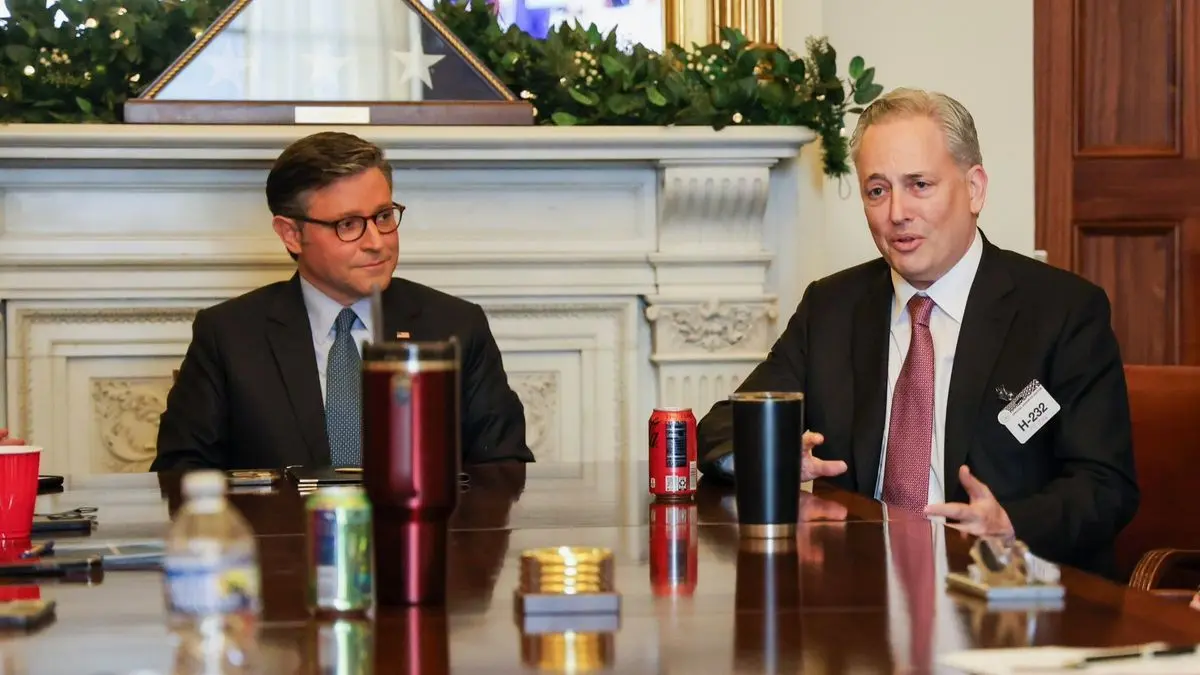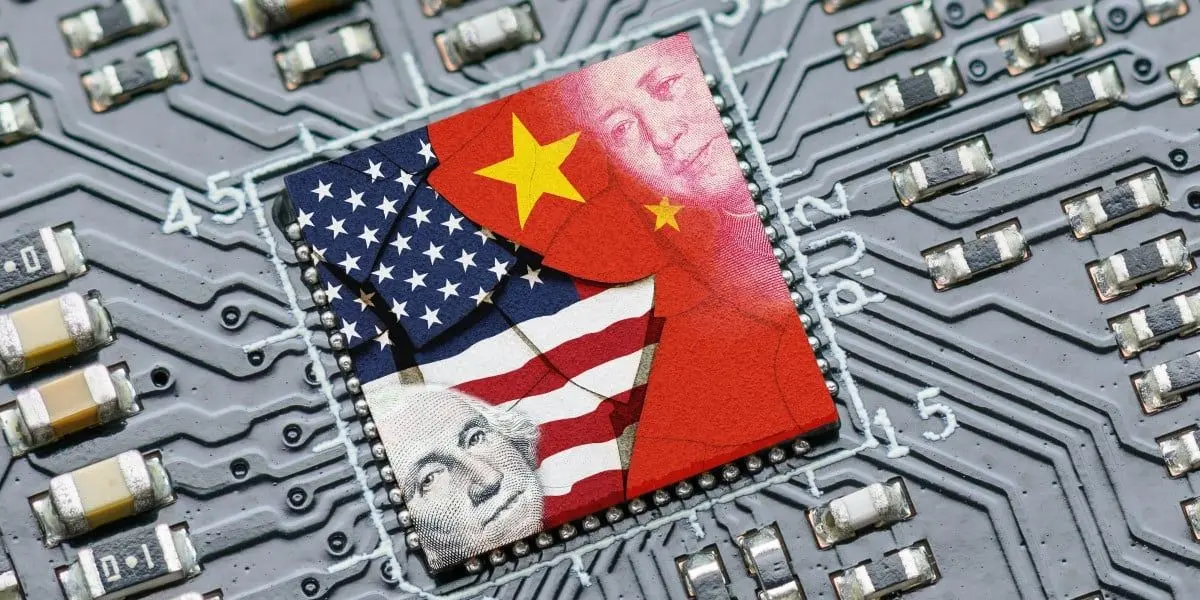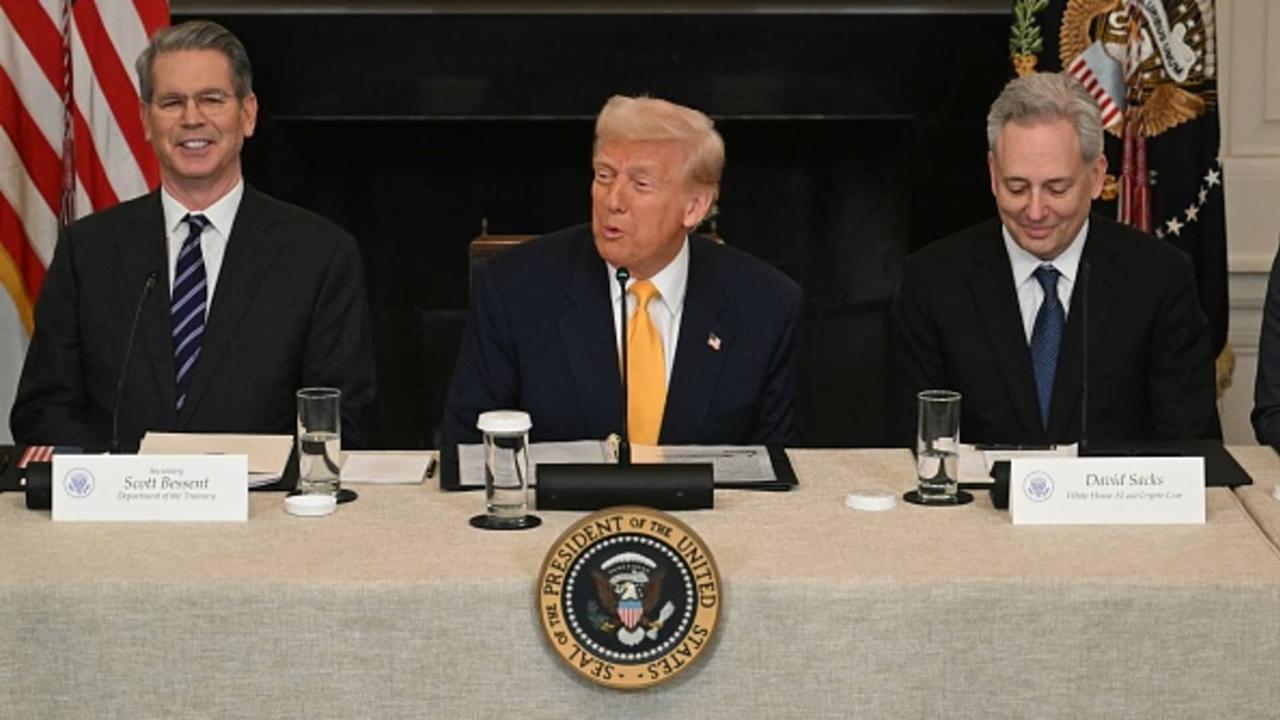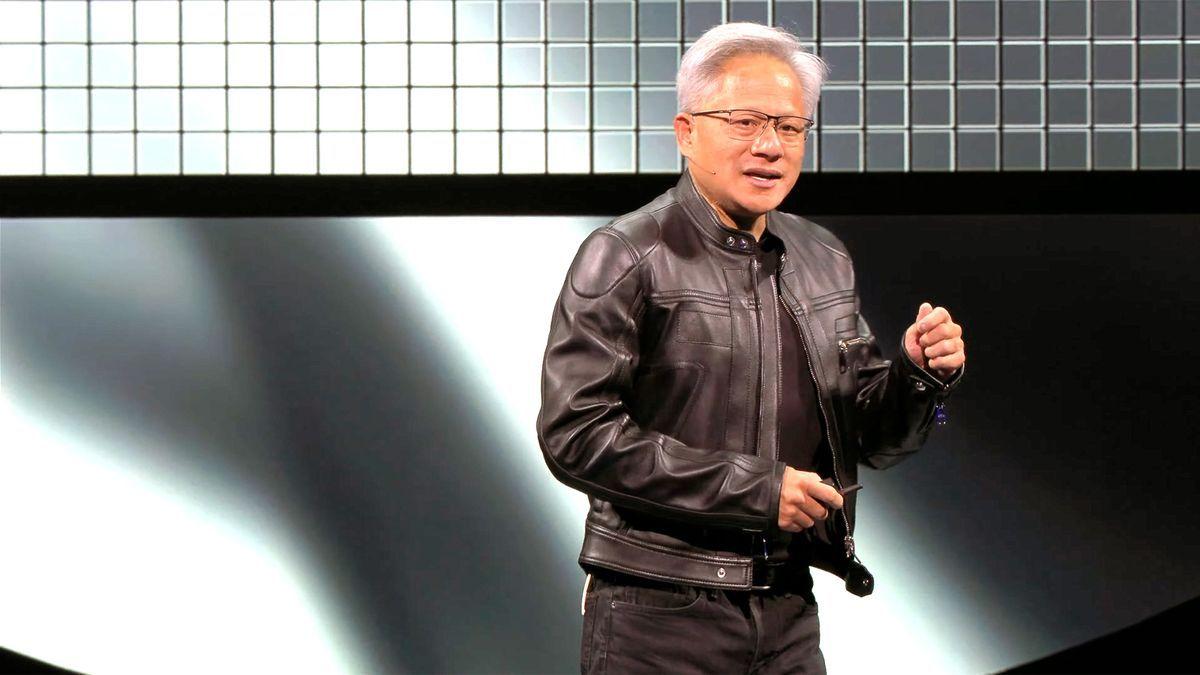US Tech Czar Warns: China Rapidly Closing AI and Chip Design Gap
5 Sources
5 Sources
[1]
White House crypto and AI adviser warns China catching up to the U.S. -- 'Before DeepSeek, people thought that Chinese AI models were years behind and we realized that they are only months behind'
Overly tight hardware export controls have helped Huawei, China pull within two years of U.S. chip design The White House's AI and crypto czar thinks that Huawei and other Chinese tech firms are pulling closer to U.S. capabilities than was previously thought, and is blaming the tight race on Biden-era policies. David Sacks, venture-capitalist-turned-government-official, believes overly strict trade regulations on U.S. hardware exports have made other countries more likely to turn to Huawei and other Chinese domestic products, rather than deal with tight U.S. export laws, per Bloomberg. "Before DeepSeek, people thought that Chinese AI models were years behind, and we realized that they are only months behind," said Sacks in an interview with Bloomberg. He further stated that the White House believes the Chinese tech sector's savvy navigation of U.S. export laws, designed to strangle its market, has helped heavy hitters like Huawei catch up to at most two years behind leading-edge U.S. chip designs. This two-year estimate matches the opinions of other industry experts, such as Jensen Huang, CEO of Nvidia. Huang said of Huawei this week, "Our technology is a generation ahead of theirs." But this was followed with a warning: "If the United States doesn't want to partake, participate in China, Huawei has got China covered, and Huawei has got everybody else covered." While Huang likely wishes for relaxed restrictions on his trade to China, the White House does not share this desire for more trade with China. Sacks, however, did share his concerns over policies that have made U.S. chips harder to access for not just China, but the rest of the world, especially U.S.-friendly nations. "The leading American semiconductor should not go to China, but we have export controls on that," said Sacks. "If we are overly restrictive in terms of US sales to the world, I think that there will be a time where we kick ourselves and say, 'All of a sudden, Huawei is everywhere when we used to have the market to ourselves. Why didn't we take advantage of that and lock it in?'" To this end, the Sacks celebrated the death of a Biden lame-duck-era policy called the AI Diffusion Rule, a trade mandate that would have made it more difficult to export almost all high-end AI-ready enterprise chips and servers. The Trump administration's Commerce Department killed the rule days before it would have gone into effect, in a move publicly celebrated by Nvidia. The U.S.-China trade war over chips has raged on since the first Trump administration, with countless Chinese tech firms barred from access to U.S.-developed chipmaking techniques, and many high-end chips placed under heavy export restrictions. The "Chip War" was supposedly started to stop Chinese military advancement, but many industry insiders argue it has become purely a battle over market dominance and ideology. While the why of the Chip War may be open to interpretation, China's rapid growth in the chip market is a plain fact. Huawei's new CloudMatrix 384 "AI supernode" rack solution beats Nvidia's Chinese-market AI solutions when running DeepSeek models, while also pulling 4x the power draw. And China shows no signs of slowing down its research efforts, doubling the output of U.S. institutions on studying next-gen chipmaking technologies. How the U.S. seeks to beat China now is truly up in the air.
[2]
Trump Adviser David Sacks Says China Adept at Evading Chip Curbs
White House crypto and artificial intelligence czar David Sacks warned that China has grown adept at evading US export controls and is at most two years behind American semiconductor design capabilities. In a Bloomberg Television interview on Wednesday, Sacks said the US should be concerned that Huawei Technologies Co. is moving fast to catch up to its rivals outside China. He said that DeepSeek's breakthrough AI model earlier this year demonstrated how China could still advance even with export controls in place.
[3]
US tech Czar: China just two years behind USA on chip design
Expects Huawei to start exporting AI chips soon, creating global fight for tech stack dominance China's AI and chipmaking prowess lags the USA's by just two years, and America's efforts to slow its progress could be hobbling its own semiconductor industry, according to Trump administration tech czar David Sacks. Sacks is chair of the President's Council of Advisors on Science and Technology and on Thursday gave an interview to Bloomberg Television in which he said China has become "adept" at working around restrictions on its semiconductor industry. "I think today China is one-and-a-half to two years behind us on chip design, but Huawei is moving fast to catch up," Sacks said. He said Huawei remains "constrained" in terms of GPU production but believes the Chinese company will start exporting hardware. "I think we do have to be concerned about Huawei competing on the global market," he said. "They may not be there yet, but I would expect that to change in the future." The prospect of Huawei becoming a significant provider of GPUs and other AI-related hardware worries Sacks, because if that happens US companies would face more competition. "If we are overly restrictive in terms of US sales to the world there will be a time where we are kind of kicking ourselves and saying: 'When we had this whole market to ourselves, why didn't we take advantage of that opportunity and lock in the American tech stack?'" Sacks said concerns over such a scenario are one reason the US abandoned the Biden-era diffusion rule that capped export sales of American GPUs outside the USA and required some buyers to secure a license for their purchases. "I think it is a valid policy objective to stop our leading-edge semiconductors going to China, but at the same time we don't want to restrict them going to our friends and allies," he said. "To be sure we should name our security requirements, but our friends and allies are eager to comply with those security requirements." Sacks said the Trump administration's goal is to have the American tech stack become the global standard. "We want to have the largest market share we can, we want to be the partner of choice for the world," he said. But he said past regulations "would have shot the tech industry in the foot out of concern US chips go to China." Huawei founder Ren Zhengfei recently rated his company's GPUs as one generation behind the best products made by US companies. However many AI workloads don't need bleeding-edge kit, so if Huawei can sell well-priced and powerful products around the world - and build the ecosystem that makes them useful - it could challenge the likes of Nvidia and AMD in some markets. Nvidia CEO Jensen Huang has also criticized US export controls on AI hardware, arguing that denying Chinese researchers access to his company's hardware means the world can't benefit from innovations developed by Middle Kingdom computer science boffins. ®
[4]
US tech czar warns China is only two years behind in semiconductor and chip design
TL;DR: White House technology adviser David Sacks has raised concerns that China is rapidly narrowing the gap with the United States in semiconductor design, estimating the difference is now just one and a half to two years. In a recent interview with Bloomberg, Sacks said Chinese companies, especially Huawei, have become adept at finding ways around US restrictions on advanced chip technology. According to Sacks, Huawei is making swift progress in chip design and could soon begin exporting its hardware, although the company still faces challenges in producing high-end GPUs. Huawei's momentum is visible in the Chinese market, where it is preparing to ramp up shipments of its new 910C AI chip to domestic customers. This chip, which integrates two of Huawei's previous 910B processors, is expected to deliver performance comparable to Nvidia's H100, one of the leading AI chips globally. While this approach does not represent a technological breakthrough, it effectively doubles computational power and memory, offering Chinese firms a viable alternative as US export restrictions tighten. Sacks warned that if Huawei and other Chinese firms succeed in bringing their products to the global market, American companies could face much stiffer competition in AI hardware and related technologies. He also cautioned that overly strict US export controls could backfire. Limiting American chip sales too aggressively, he argued, might allow rivals to catch up and erode the US lead - especially if the United States misses opportunities to establish its technology as the global standard. This concern, Sacks said, was one reason the Trump administration decided to drop a Biden-era rule that restricted GPU exports and required special licenses for some international buyers. While Sacks acknowledged the importance of keeping the most advanced US chips out of China, he stressed that export controls should not hinder sales to allied countries that are willing to comply with American security requirements. He emphasized that the administration's goal is to make the US technology stack the preferred choice worldwide, giving American companies the largest possible share of the international market. Sacks's comments come as Huawei's founder recently admitted the company's GPUs remain a generation behind the top US products. However, with many AI applications not requiring the latest hardware, Sacks suggested that Huawei could still become a formidable competitor if it can offer powerful, affordable products and build a strong ecosystem around them.
[5]
China adept at evading chip curbs, Trump adviser David Sacks says
White House crypto and artificial intelligence czar David Sacks warned that China has grown adept at evading U.S. export controls and is, at most, two years behind American semiconductor design capabilities. In a Bloomberg Television interview on Wednesday, Sacks said the U.S. should be concerned that Huawei Technologies is moving fast to catch up to its rivals outside China. He said that DeepSeek's breakthrough AI model earlier this year demonstrated how China could still advance even with export controls in place. "Before DeepSeek, people thought that Chinese AI models were years behind, and we realized that they are only months behind," Sacks said.
Share
Share
Copy Link
White House adviser David Sacks raises alarm over China's progress in AI and semiconductor technology, estimating they're only months behind in AI models and about two years behind in chip design capabilities.
China's Rapid Advancement in AI and Chip Technology
In a startling revelation, White House crypto and artificial intelligence czar David Sacks has warned that China is rapidly closing the gap with the United States in AI and semiconductor technology. Sacks, a venture-capitalist-turned-government-official, estimates that China is now only months behind in AI models and at most two years behind in chip design capabilities
1
2
.
Source: Tom's Hardware
The Narrowing AI Gap
The assessment of China's AI progress comes as a shock to many in the industry. "Before DeepSeek, people thought that Chinese AI models were years behind, and we realized that they are only months behind," Sacks stated in an interview with Bloomberg
1
. This revelation underscores the rapid pace of AI development in China, despite U.S. efforts to maintain a technological edge.Huawei's Chip Design Progress
Sacks particularly highlighted Huawei's swift advancement in chip design. He believes that Huawei is moving fast to catch up with its rivals outside China and could soon begin exporting its hardware
3
. This progress is evident in Huawei's new CloudMatrix 384 "AI supernode" rack solution, which reportedly outperforms Nvidia's Chinese-market AI solutions when running DeepSeek models1
.
Source: The Register
Impact of U.S. Export Controls
The Trump administration adviser criticized overly strict U.S. export controls, suggesting they may be counterproductive. Sacks argued that these restrictions have made other countries more likely to turn to Huawei and other Chinese domestic products, rather than deal with tight U.S. export laws
1
4
.Global Competition and Market Share
Sacks expressed concern about the potential for Chinese firms, especially Huawei, to compete in the global market for AI hardware and related technologies. He warned, "If we are overly restrictive in terms of US sales to the world, I think that there will be a time where we kick ourselves and say, 'All of a sudden, Huawei is everywhere when we used to have the market to ourselves.'"
1
3
Related Stories
U.S. Policy Shift
In response to these concerns, the Trump administration has abandoned the Biden-era AI Diffusion Rule, which would have further restricted the export of high-end AI-ready enterprise chips and servers
1
. Sacks emphasized the need for a balanced approach, stating, "I think it is a valid policy objective to stop our leading-edge semiconductors going to China, but at the same time we don't want to restrict them going to our friends and allies."3
China's Research Efforts

Source: TechSpot
China's rapid progress is not limited to commercial applications. The country has doubled its output of research on next-generation chipmaking technologies compared to U.S. institutions
1
. This increased focus on research and development further underscores China's commitment to closing the technological gap.Industry Perspectives
While Huawei's founder, Ren Zhengfei, recently rated his company's GPUs as one generation behind the best U.S. products, industry experts like Nvidia CEO Jensen Huang have also acknowledged China's progress. Huang stated, "Our technology is a generation ahead of theirs," but warned, "If the United States doesn't want to partake, participate in China, Huawei has got China covered, and Huawei has got everybody else covered."
1
3
As the technological race between the U.S. and China intensifies, the global tech industry watches closely. The coming years will likely see increased competition in AI and semiconductor markets, with potentially far-reaching implications for global technological leadership.
References
Summarized by
Navi
[3]
Related Stories
Trump's AI Czar Downplays Chip Smuggling Risks, Warns of Over-Regulation as China Closes AI Gap
11 Jun 2025•Policy and Regulation

White House AI Czar Warns: China Only 3-6 Months Behind US in AI Race
11 Jun 2025•Technology

US Projects Limited AI Chip Production by Huawei, Warns of China's Rapid Advancements
13 Jun 2025•Technology

Recent Highlights
1
ByteDance Faces Hollywood Backlash After Seedance 2.0 Creates Unauthorized Celebrity Deepfakes
Technology

2
Microsoft AI chief predicts artificial intelligence will automate most white-collar jobs in 18 months
Business and Economy

3
Google reports state-sponsored hackers exploit Gemini AI across all stages of cyberattacks
Technology





